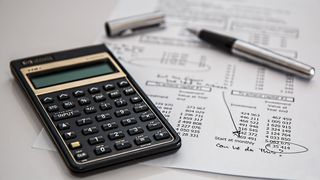Car finance can be overcomplicated and many people are uncertain whether or not they are getting a good deal.
It is the preferred method of buying a new or used car for around 90% of customers, with the option to spread the cost across fixed monthly payments and for the length of time that suits their needs and budget is some of the highlights.
But sometimes what looks like a good deal on paper can actually end up being more than what you were willing to pay initially, especially if you spread the cost across the maximum number of months permitted - usually 48-60.
Do you have a car on finance? Check to see your deal position and take back control. We can show you your car's depreciation value, equity position, and much more in your own personalised dashboard where you can track and monitor your deal every month.
This is because the longer you spread the costs, the more interest you will pay over time which can exceed your budget without you realising.
That's where car finance does become confusing because you need to try and work out all the interest rates and then something called an APR.
We're here to break down exactly what that means and how you can help yourself when it comes to your car finance deal in the future.
What is APR?
APR stands for annual percentage rate and is the rate that allows you to compare the cost of credit between products and providers.
It takes account of interest charges as well as the fees and charges included in the cost of credit.
This is calculated across the whole year and then split up into 12 months to form your monthly payments.
How does APR work?
For example, if you borrowed £10,000 for a car with a 5% APR to be repaid over five years, the lender will work out the 5% added in each of those five years then add it onto the amount borrowed, split into 60 (five years) fixed monthly payments.
They would also take into account the balance decreasing over time as you make your repayments.
So over five years, you’ll make monthly payments of around £175 which would be the APR plus the £10,000.

What is representative APR?
Not everyone's credit history is the same and like credit checks when some people are approved and some aren't, not everyone is offered the same APR when borrowing.
It makes it difficult when a lender wants to advertise particular offers but also for you to work out just how much extra you might end up paying.
Representative APR looks at the lowest APR that a particular lender will offer to 51% of people who are accepted.
If you saw an offer of a 17% APR, 51% of people approved will get it at that rate and the other 49% people are likely to be approved but at a higher APR.
It's definitely not an easy one to manage as you could be expecting one thing and be offered another. So it's certainly useful to do some research and shopping around before taking the plunge.
What is personal APR?
This is the rate that you're actually given. It could be as part of the 51% in the representative rate or higher, it's all dependent on your eligibility.
The lender will review your credit history and financial details to ensure you are suitable for the loan before making a decision on it.
What is a good APR?
Generally, the more you borrow, the lower your APR. Once more, your credit history will come into play and will help determine just how high or low it will be.
So defining 'good' is quite difficult as really it's all based upon personal financial history.
Obviously the lower the APR, the better, but if you have a poor credit history and are offered 12%, you might be thrilled, whereas someone with a good score being offered 12% might not be. So it's all very subjective and dependent on your own personal financial situation.
/apr-finance.jpg)


/carfinancesettlementcalculator.png)
/car-finance-bad-credit.jpg)
/carfinancecompensation.jpg)